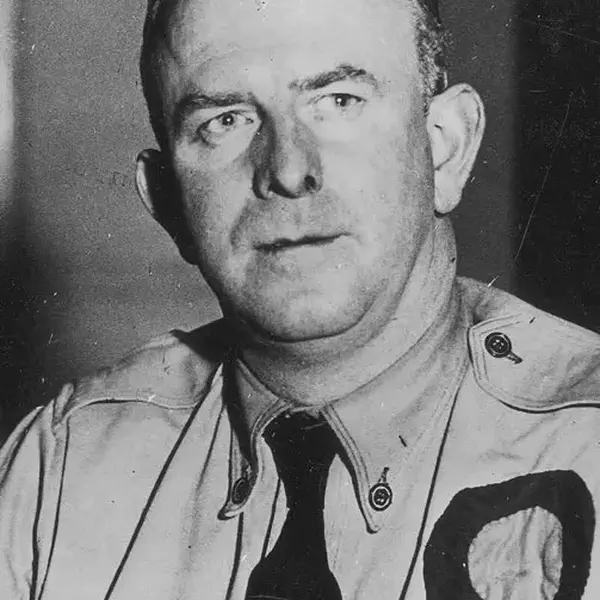
Eoin O'Duff Becomes Leader Blueshirts
July 20, 1933
Eoin O’Duffy (born Owen Duffy; 28 January 1890 – 30 November 1944) was an Irish revolutionary military commander and police commissioner who later became a fascist leader.
He was elected a Sinn Féin Teachta Dála (TD) for Monaghan in the Second Dáil, supporting pro-Treaty Sinn Féin in the split of 1922.
O’Duffy later became leader of Fine Gael for just over a year before resigning, then departing for Spain where he led a brigade of Irish volunteers in the Spanish Civil War.
O’Duffy was the leader of the Monaghan Brigade of the Irish Republican Army (IRA) and a prominent figure in the Ulster IRA during the Irish War of Independence. In this capacity, he became Chief of Staff of the IRA in 1922. He accepted the Anglo-Irish Treaty and served as a general in the National Army in the Irish Civil War, on the pro-Treaty side.
O’Duffy became the second Commissioner of the Garda Síochána, the police force of the new Irish Free State, after the Civic Guard Mutiny and the subsequent resignation of Michael Staines. He had been an early member of Sinn Féin. He was elected as a Teachta Dála (TD) for Monaghan, his home county, during the 1921 election.
Blueshirts
After a split in Sinn Féin in 1923, he became associated with Cumann na nGaedheal and led the movement known as the Blueshirts. After the merger of various pro-Treaty factions under the banner of Fine Gael, O’Duffy was the party leader for a short time, before leaving the party in 1934.
Spanish Civil War
O’Duffy was attracted to the various fascist movements on the continent. He raised the Irish Brigade to fight for Francisco Franco during the Spanish Civil War as an act of Catholic solidarity and was inspired by Benito Mussolini’s Italy to found the National Corporate Party. During the Second World War, he offered to Nazi Germany the prospect of raising an Irish Brigade to fight against the Soviet Union on the Eastern Front, but this was not taken up.
O’Duffy was active in multiple sporting bodies, including the Gaelic Athletic Association and the Irish Olympic Council.